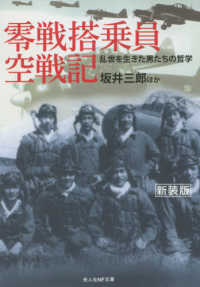Description
The Sage Handbook of Peace and Conflict Studies offers a comprehensive exploration of the complexities of violence, conflict, and peace from a global, interdisciplinary perspective. The handbook addresses the traditional Western-centric approach while emphasizing the need to integrate Global South perspectives to create a more inclusive and transformative understanding of peace and conflict.
While important voices in peace and conflict studies have long stressed the need to not only address direct violence but also structural and cultural one, certain strands of the field have upheld conservative knowledge production and reinforced unequal power structures. This volume seeks to challenge these biasesby foregrounding critical and decolonial approaches that emphasize gender, race, culture, global history, and political economy. Its diverse chapters invite us to question mainstream assumptions and promote a broader, more inclusive analysis of peace and conflict.
The handbook explores the evolution of the field, highlighting the impact of historical events and the role of oppositional knowledge in political change. It offers a critical overview of theoretical approaches, emphasizing reflexivity, inclusivity, and the importance of local actors in peace and conflict dynamics. Additionally, it examines how cultural and disciplinary assumptions shape peacebuilding and conflict transformation, and it critiques traditional global narratives on issues like governance, climate change, and human rights. Finally, the handbook presents real-world case studies that integrate themes of decoloniality, race, gender, and power inequalities across diverse global contexts.
By centering the Global South and integrating interdisciplinary perspectives, this handbook provides valuable insights for scholars and practitioners committed to fostering a more equitable and just world.
Section 1: History, Knowledge, and Power in Peace and Conflict Studies
Section 2: Theory and Analysis in Peace and Conflict Studies
Section 3: Practices and Approaches in Peace and Conflict Studies
Section 4: Global Issues, Institutions, and Change in Peace and Conflict Studies
Section 5: Case Studies in Peace and Conflict Studies
Table of Contents
Section 1: History, Knowledge, and Power in Peace and Conflict Studies
1. Introduction: History, Knowledge, and Power in Peace and Conflict Studies - Timothy Seidel and Maia Carter Hallward
2. A History of Peace and Conflict Studies: Developments and Dispersions of the Field - John S. Moolakkattu
3. Epistemology: Power and Knowledge in Peace and Conflict Studies - Óscar Mateos Martín and Ana Isabel Rodríguez Iglesias
4. Kia Puawai, Future Flowering: Indigenous Methodologies within Peace and Conflict Studies - Kelli Te Maiharoa and Heather Devere
5. Faith and Religion in Peace and Conflict Studies - Atalia Omer
6. Contending Histories of Ethics in Peace and Conflict Studies - Reina C. Neufeldt
7. Global Peace and Conflict Studies - Liu Cheng and Lester R. Kurtz
8. On Violence…Here and Now - Emily E. Welty
9. Decolonial Peace and Critical Approaches to Rewriting the Official History of Peace - Juan Daniel Cruz
Section 2: Theory and Analysis in Peace and Conflict Studies
10. Introduction: Peace and Conflict Studies in Theory - Zubairu Wai and Cécile Mouly
11. Mainstream vs Critical Approaches in Peace and Conflict Studies - Benjamin Maiangwa and Sean Byrne
12. Debating Structure and Agency in Peace and Conflict Studies - Elias O. Opongo
13. Critical Political Economy Approach to Peace and Conflict Studies - Tariq Dana and Matteo Capasso
14. Feminist Approaches to Peace and Conflict Studies - Marianna Espinós Blasco and Punam Yadav
15. Discursive Turn: Poststructuralism, Hermeneutics, and Discourse Analysis - Michael Wilson-Becerril
16. Liberal Peace and its Critics - Aidan Gnoth
17. Hybrid Peace - Peter Genger
18. Decolonizing Peace: Possibilities for Pluriversality - David Golding and Victoria C. Fontan
Section 3: Practices and Approaches in Peace and Conflict Studies
19. Introduction: Practices and Approaches in Peace and Conflict Studies from a Critical Perspective - Cécile Mouly and Ji Eun Kim
20. Evolution of Peace Education - Kalika Kastein
21. Deconstructing the Narrative: A Critique of Civil Resistance Studies in Indigenous Struggles - María Belén Garrido and Silvio Álvarez
22. Women’s Inclusion in Peace Processes: A Feminist Reflection - Duanghathai Buranajaroenkij and Ayesah Uy Abubakar
23. Victims and the Reproduction of Power Relations in Transitional Justice - Ismael Muvingi and Tyrone Savage
24. Indigenous Resistance to the ‘Violence’ of Restorative Justice - Juan Tauri
25. DDR on the Peace Road: From Stabilization to Conflict Transformation - Camila de Macedo Braga
26. Confronting Security Sector Reform (SSR): A Critical Inquiry into its Reasoning and Praxis - Ahmet Barbak
27. Community-Led Monitoring and Evaluation of Peace Projects - Landon Hancock
28. Infrastructures for Peace (I4Ps): A Conceptual Review - Maxwell Adjei and Frank Okyere Osei
29. Decolonial Possibilities in Arts and Peacebuilding - Paula Ditzel Facci
Section 4: Global Issues, Institutions, and Change in Peace and Conflict Studies
30. Introduction: Global Issues, Institutions, and Change in Peace and Conflict Studies - Ji Eun Kim and Zubairu Wai
31. North South Dimension in Global Peace and Conflict Studies: Contesting assumptions of ‘geographies’ of peace and violence - Mahdis Azarmandi
32. International Institutions, Global Governance, and Peacebuilding - Faye M. Fraser
33. International Peace Interventions and the Security-Development Nexus - Marta Iñiguez de Heredia
34. Indigeneity, Decolonization, and Global Security - Kozue Akibayashi
35. Planetary Ecological Crisis, Climate Change, and Conflict: Unsettling Understandings and Geographies of Encounter - Reed Byg and Leah Ramnath
36. Refugees, Forced Migration, Conflict, and Security - Jean-Pierre D. Murray and Jeffrey D. Pugh
37. Global Arms Control and Disarmament - shine choi
38. Gender, Global Security, and Peacebuilding: The Women, Peace, and Security Agenda - Karie Cross Riddle
39. Global Human Rights Institutions - Minju Kwon and Chaeyoung Yong
Section 5: Case Studies
40. Introduction: Case Studies in Peace and Conflict Studies: Illustrating Alternative Perspectives - Maia Carter Hallward and Timothy Seidel
41. The Russia-Ukraine War - Kristina Hook
42. The Rise and Demise of the Bosnia and Herzegovina Protectorate - Michael Pugh
43. Failure of Liberal Peacebuilding: Case Study of Afghanistan - Faiz Zaland
44. How Israel’s Settle-Colonialism Hinders Peace and Development - Eleyan Sawafta and Hasan Ayoub
45. Libya - Alaa Tartir and Amal Bourhous
46. Conflict Transformation in the Democratic Republic of Congo: A Case Study - Patrick Litanga
47. Pre-School Intervention in Sri Lanka - Gladston Xavier and Florina Xavier
48. The 2016 Peace Accord and Transitional Justice in Colombia - Juan Esteban Ugarriza Uribe and Laly Catalina Peralta González
49. How Ethnic Rebellions Began (and Did Not Begin) in Burma - Jangai Jap
50. Navigating through Peripheries: Interrogating definitions of peace and conflict in the Marshall Islands - Beatriz Rodrigues Bessa Mattos and Sebastián Granda Henao








